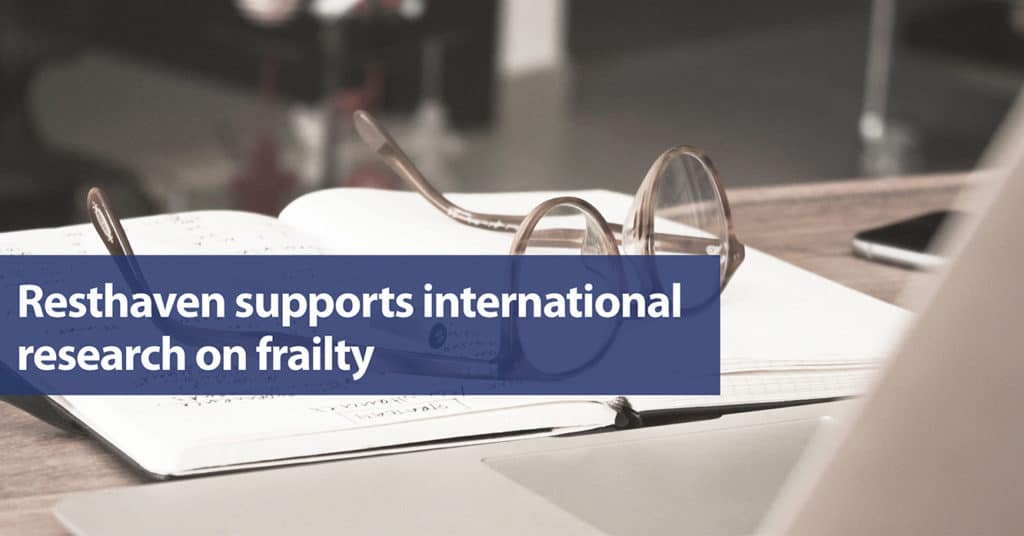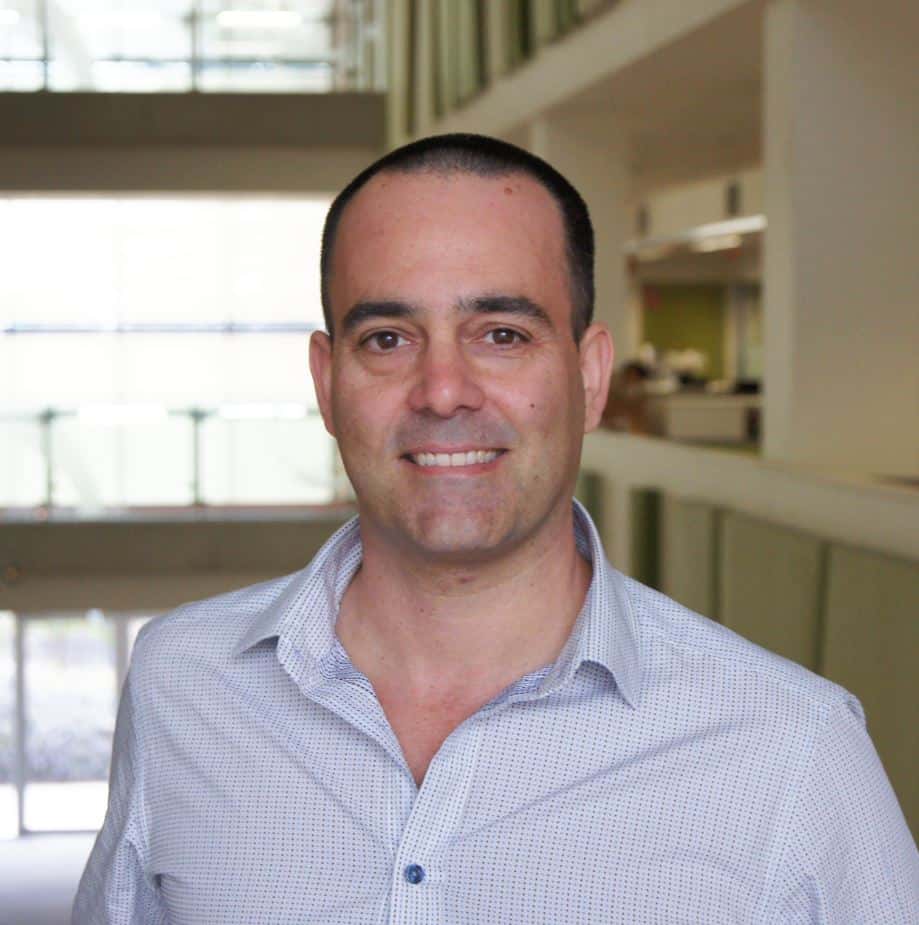
Resthaven supports international research on frailty
Dr Mark Thompson is a post-doctoral research fellow and occupational therapist with the University of Adelaide. He was the lead author on a recent article published in ‘Age and Ageing’, one of the world’s leading journals on the health of older adults.
 This research was supported by Resthaven and used data from the North West Adelaide Health Study to examine the minimally important difference, or the extent of change, in frailty status that individuals consider to be important. This topic is one that has not yet been explored in detail internationally.
This research was supported by Resthaven and used data from the North West Adelaide Health Study to examine the minimally important difference, or the extent of change, in frailty status that individuals consider to be important. This topic is one that has not yet been explored in detail internationally.
‘The findings inform us on how much frailty needs to be present for an individual to describe their health status as either excellent, very good, good, fair, or poor,’ Mark explains.
‘This work was complicated by the fact that there is not a single definitive way to measure frailty.
‘There are two different forms of frailty measurement. The first, known as the ‘frailty phenotype’, defines frailty as being present when an individual has three or more of the following: unintentional weight loss, weakness, slowness, exhaustion, and low activity.
‘The other approach, the ‘frailty index’, measures a range of at least 30 health and functional characteristics, and reports the number of deficits that are present. Someone with more than 21% deficits present is classified as being frail.’
The results of the study showed that, for the ‘frailty phenotype’, a single characteristic was enough to impact on a person’s self-reported health. For the ‘frailty index’, a difference of approximately 7-11% in frailty scores resulted in a different health score.
Mark explained that these findings are important in a number of ways.
‘Sometimes, people can experience a gradual deterioration in frailty but not actually notice the change happening. This makes it important to have an annual health check and review of frailty status, particularly for people over 75, where Medicare supports GPs to do a detailed annual assessment.’
‘Also, we know that people can delay or improve their frailty status through exercise and increasing their nutritional intake.
‘Now, when we are conducting research on interventions to treat frailty, we know how much people need to improve for them to consider that their health status has improved.’
The publication was also among the first in the world to report on health economic indicators of frailty which can be used in economic evaluations of frailty treatment. These measures are used by funding bodies when deciding to invest in health and medical treatments.
An international team of collaborators from the University of Adelaide, Flinders University, Sheffield University (UK) and Dalhousie University (Canada) was involved in designing and publishing the research.
Resthaven’s support allowed Assistant Professor Olga Theou from Dalhousie University to travel to Adelaide and work closely with University of Adelaide researchers on this and other projects.
Resthaven supports a wide variety of research that contributes to the health and wellbeing of older people, and the staff who support them.
Read the article here: https://academic.oup.com/ageing/advance-article-abstract/doi/10.1093/ageing/afaa166/5906189
